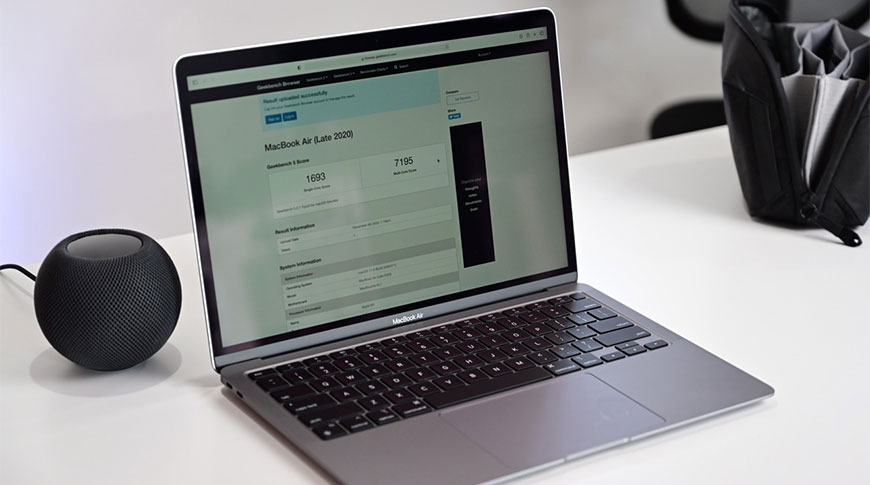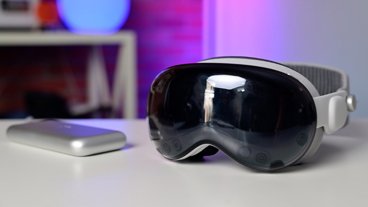Apple's M1 MacBook Air smashes Windows on ARM in new benchmarks
A benchmark test published on Tuesday shows a massive performance gap between Mac computers powered by Apple's M1 chip and Windows on ARM machines running the latest 64-bit x86 apps via an official emulator.
Conducted by PCWorld, the evaluation pits a Microsoft Surface Pro X against the new M1 MacBook Air, two devices that incorporate ARM processors.
As noted by the publication, there are precious few ARM-based Windows boxes from which to choose as only two chips — Qualcomm's Snapdragon 8cx and Snapdragon 8cx Gen 2 — power the platform. Microsoft's derivative SQ1 and SQ2 processors, designed in partnership with Qualcomm, are in the Surface Pro X.
PCWorld's Windows testbed relied on a first-generation SQ1, though any gains derived from the more recent SQ2 are thought to be insignificant.
The MacBook Air crushed the Surface Pro X in both single- and multi-score Geekbench 5 testing. Apple's new laptop scored 1730 points in the single-core process, beating Surface's score by just over 1000 points. Multi-core testing revealed an even larger disparity, with MacBook Air clocking 7454 points to Surface's 2734 points.
Results from Maxon's Cinebench also gave the M1 a commanding lead with single- and multi-core scores landing at 1496 and 6838, respectively, handily beating Surface Pro X's 371 and 1604.
Moving on to open source video transcoding tool Handbrake, MacBook Air finished transcoding a 12-minute 4K video into a 1080p H.265 file six times faster than the Surface.
It should be noted that Microsoft's 64-bit x86 emulator is still in beta. Still, even with a concerted software development effort, Windows on ARM lacks the hardware chops to catch up with Apple's macOS and M1 integration.
The first in an expected line of in-house designed Mac chips, the M1 debuted in November and currently powers the new MacBook Air, 13-inch MacBook Pro and Mac mini. Early benchmarks, and AppleInsider's own reviews, have revealed blazing compute speeds and extremely high levels of power efficiency compared to legacy Intel models.
With high performance chip designs on the horizon, Apple Silicon could soon represent a paradigm shift in personal computing.
 AppleInsider Staff
AppleInsider Staff











 Andrew Orr
Andrew Orr
 Sponsored Content
Sponsored Content
 Malcolm Owen
Malcolm Owen

 William Gallagher
William Gallagher

 Mike Wuerthele
Mike Wuerthele
 Christine McKee
Christine McKee







